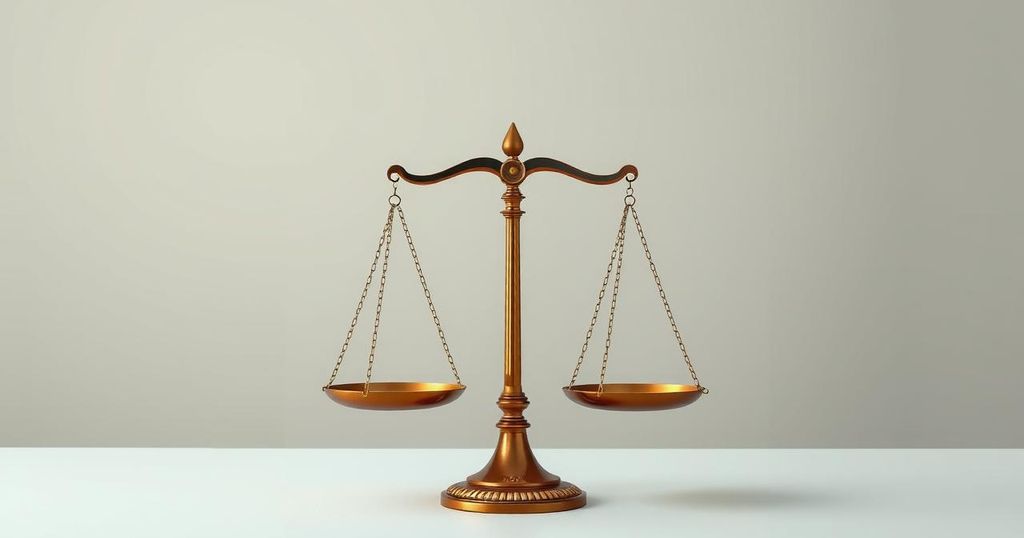The Davos meeting underscored worries over Iran’s accelerated uranium enrichment, with IAEA’s Grossi reporting an enhanced capability nearing weapons-grade materials. Tensions rose between Israeli and Iranian representatives, with Herzog condemning Iran’s actions. The U.S. administration under Trump is likely to adopt a stringent approach towards Iran, potentially reviving sanctions and considering military options in response to nuclear proliferation concerns.
The recent annual meeting of the World Economic Forum in Davos highlighted critical discussions surrounding Iran’s nuclear program. Rafael Grossi, the Director General of the International Atomic Energy Agency (IAEA), noted an alarming acceleration in Iran’s uranium enrichment, indicating it has significantly increased production to levels approaching nuclear weapon capability. Iran now possesses around 200 kg of uranium enriched to 60%, potentially enough to create a nuclear bomb if further refined.
Tensions flared at the forum between Israel’s President Isaac Herzog and Iran’s representative, Javad Zarif, as Herzog condemned Iran’s investments in terrorism and called it an ‘evil empire.’ The Israeli leader emphasized the urgent need for a cohesive global stance against Iran’s nuclear ambitions, suggesting the current Iranian regime poses a continuous threat.
As discussions turned to the U.S. political landscape, the implications of Donald Trump’s return to power emerged, with various U.S. officials signaling a more aggressive stance against Iran. New appointments within the Trump administration reaffirmed the commitment to countering Iranian threats and reinstating sanctions lifted under the previous nuclear deal.
Recent intelligence reports disclosed by the National Council of Resistance of Iran (NCRI) suggested that Iran is concealing missile developments under the guise of satellite launch facilities. These developments could provide Iran with capabilities to strike Europe with nuclear weapons, potentially escalating regional and global tensions significantly.
There are discussions within Israeli and U.S. military circles about the feasibility of preemptive strikes on Iranian nuclear facilities, particularly in light of vulnerabilities exposed in recent skirmishes. However, Trump has refrained from directly endorsing military action, expressing confidence in his ability to negotiate a nuclear deal under stringent verification measures that could deter Iran from attaining nuclear arms.
The discourse surrounding Iran’s nuclear ambitions has intensified in recent years, particularly involving key world leaders and influencers. The World Economic Forum serves as a platform for addressing pressing global issues, and Iran’s nuclear program has increasingly occupied discussions due to growing concerns over regional stability and security. The insights provided by the IAEA reveal critical advancements in Iran’s uranium enrichment capabilities, heightening tensions between Iran and other nations, especially Israel. U.S. policies toward Iran have shifted markedly with different administrations, reflecting varying strategies for addressing the perceived threats that Iran poses to global security. The complexities of Iranian geopolitics continue to draw attention from world leaders who are confronted with balancing diplomatic relations and safeguarding international stability.
In summary, the discussions at the Davos meeting underscore the heightened concern regarding Iran’s nuclear capabilities and the geopolitical ramifications of its advancements. Tensions between Israel and Iran signify a broader security challenge, while the changing dynamics of U.S. foreign policy under Trump add layers of complexity to potential resolutions. As the international community watches closely, the call for decisive action against Iran’s military and nuclear aspirations remains urgent and paramount among global leaders.
Original Source: www.jpost.com






